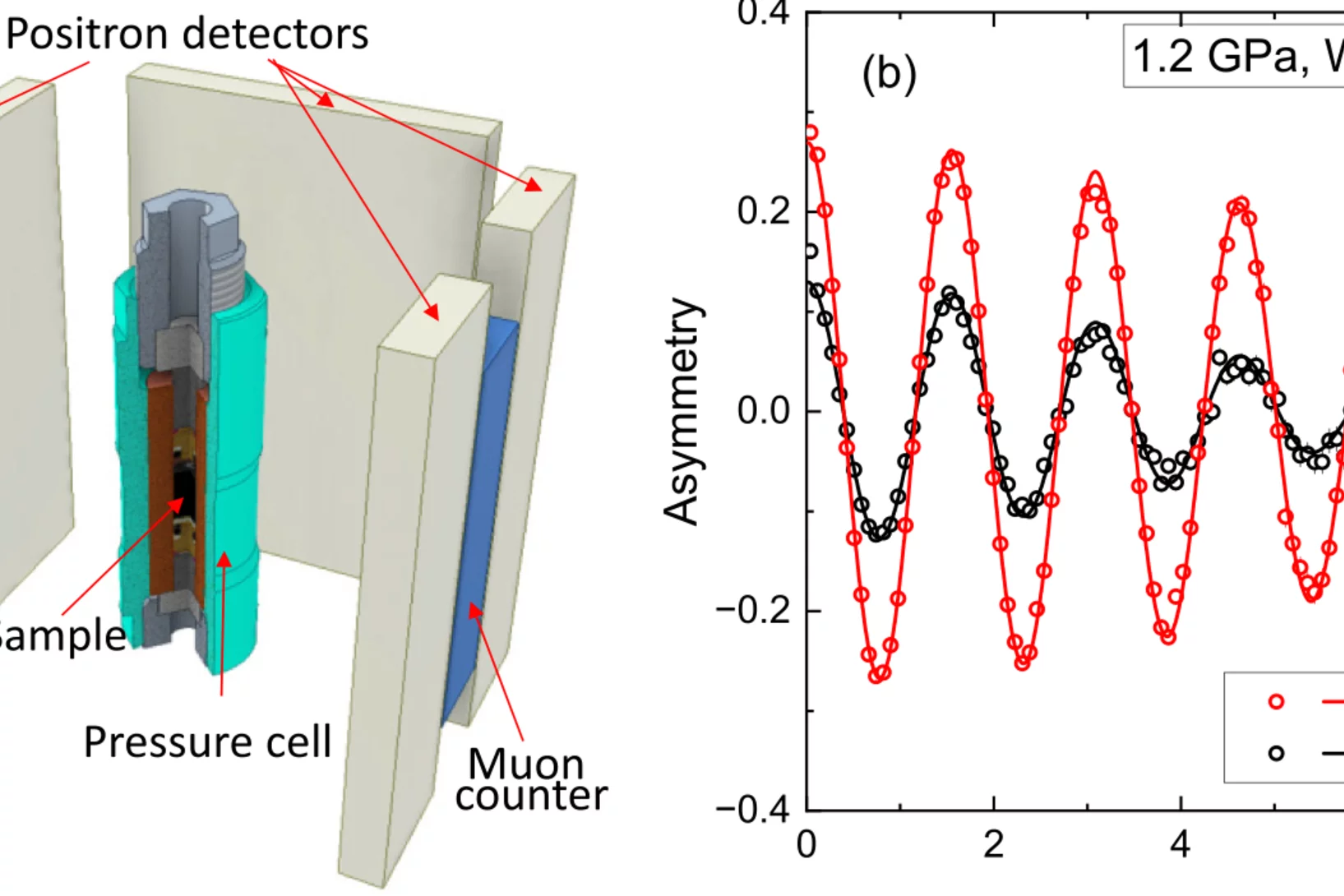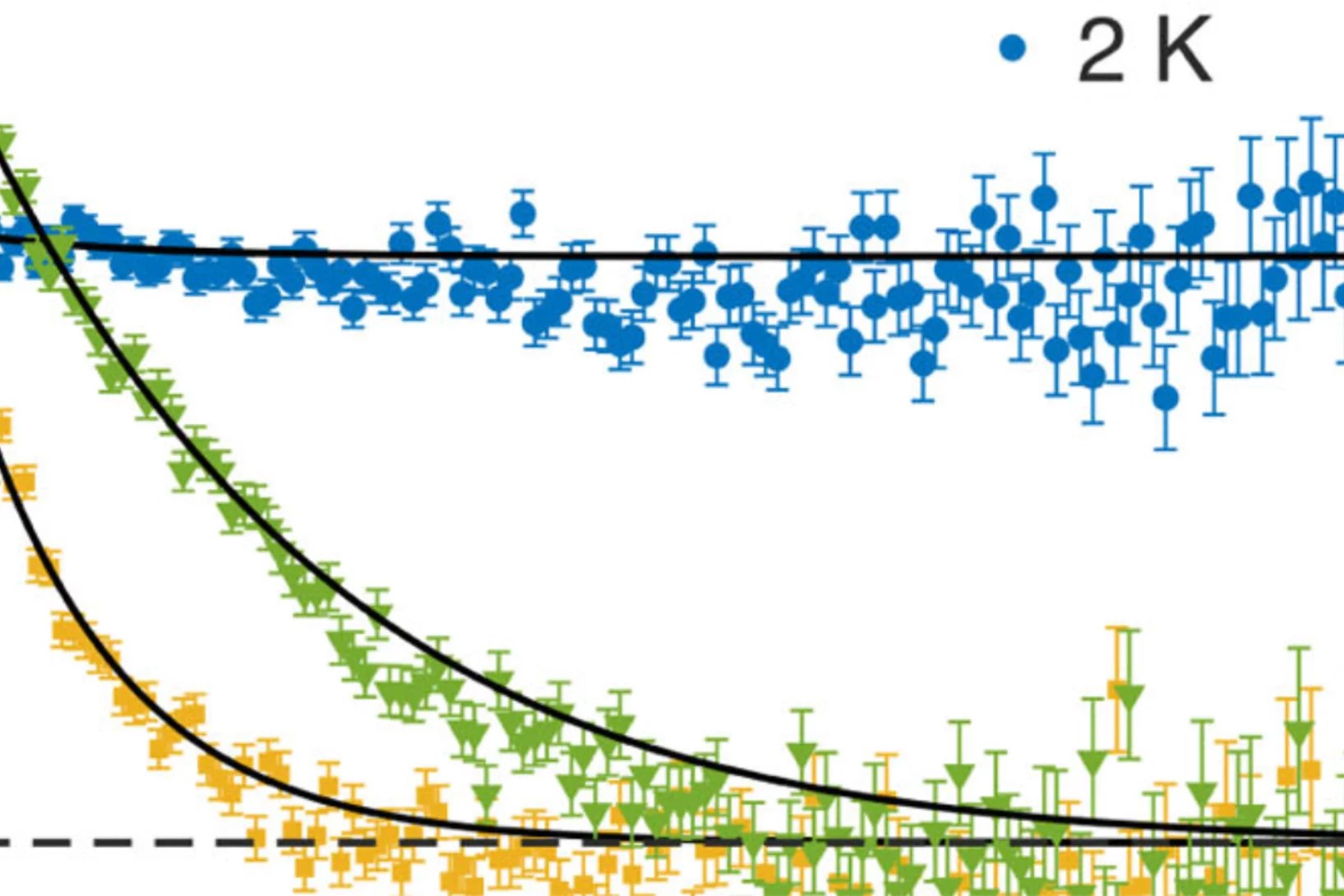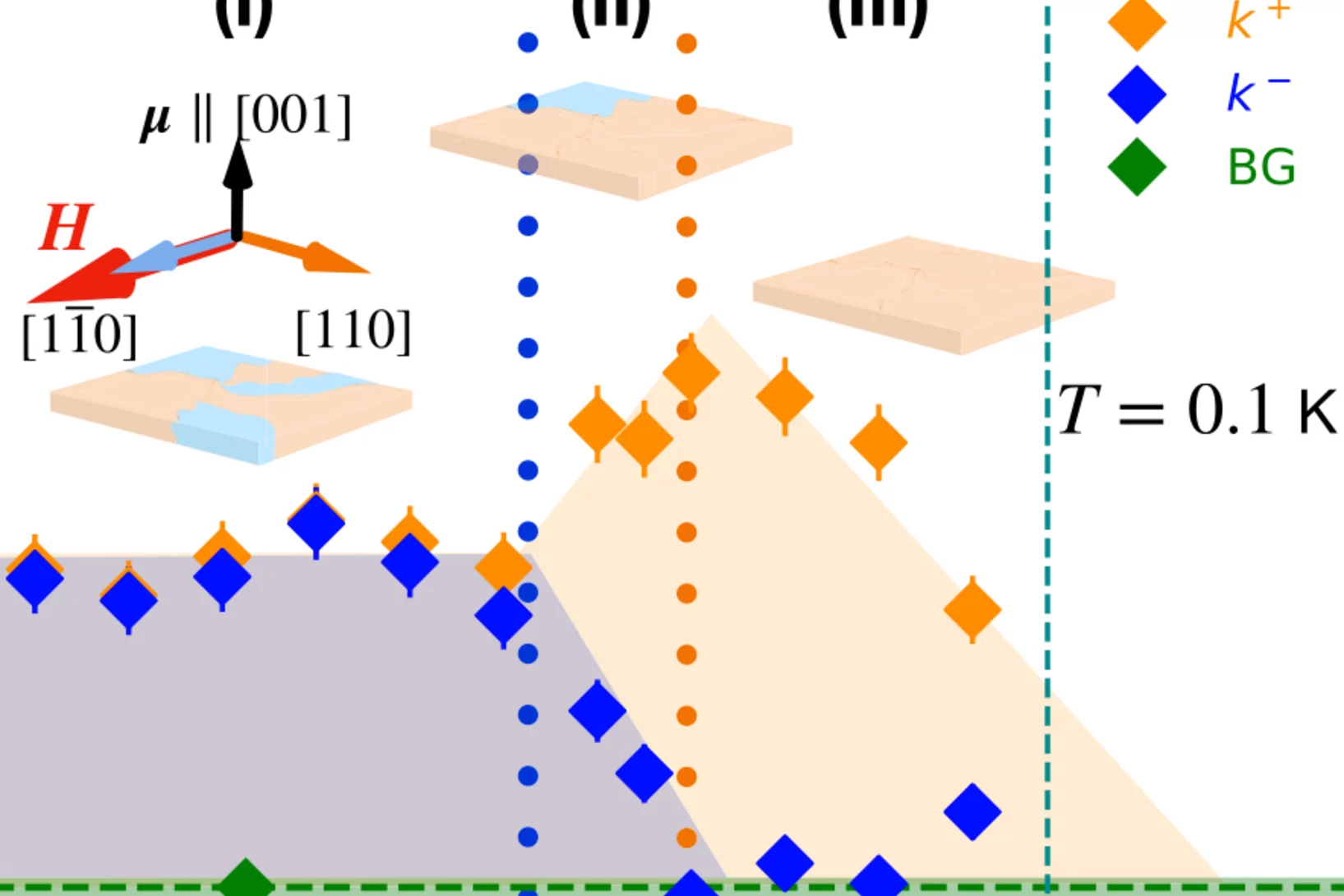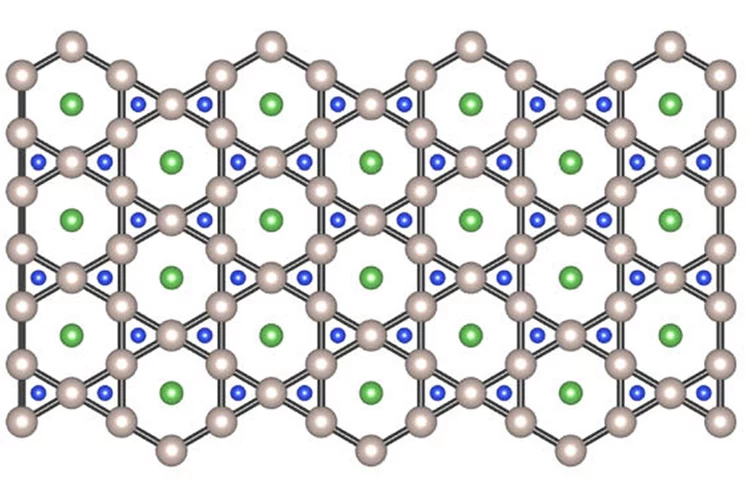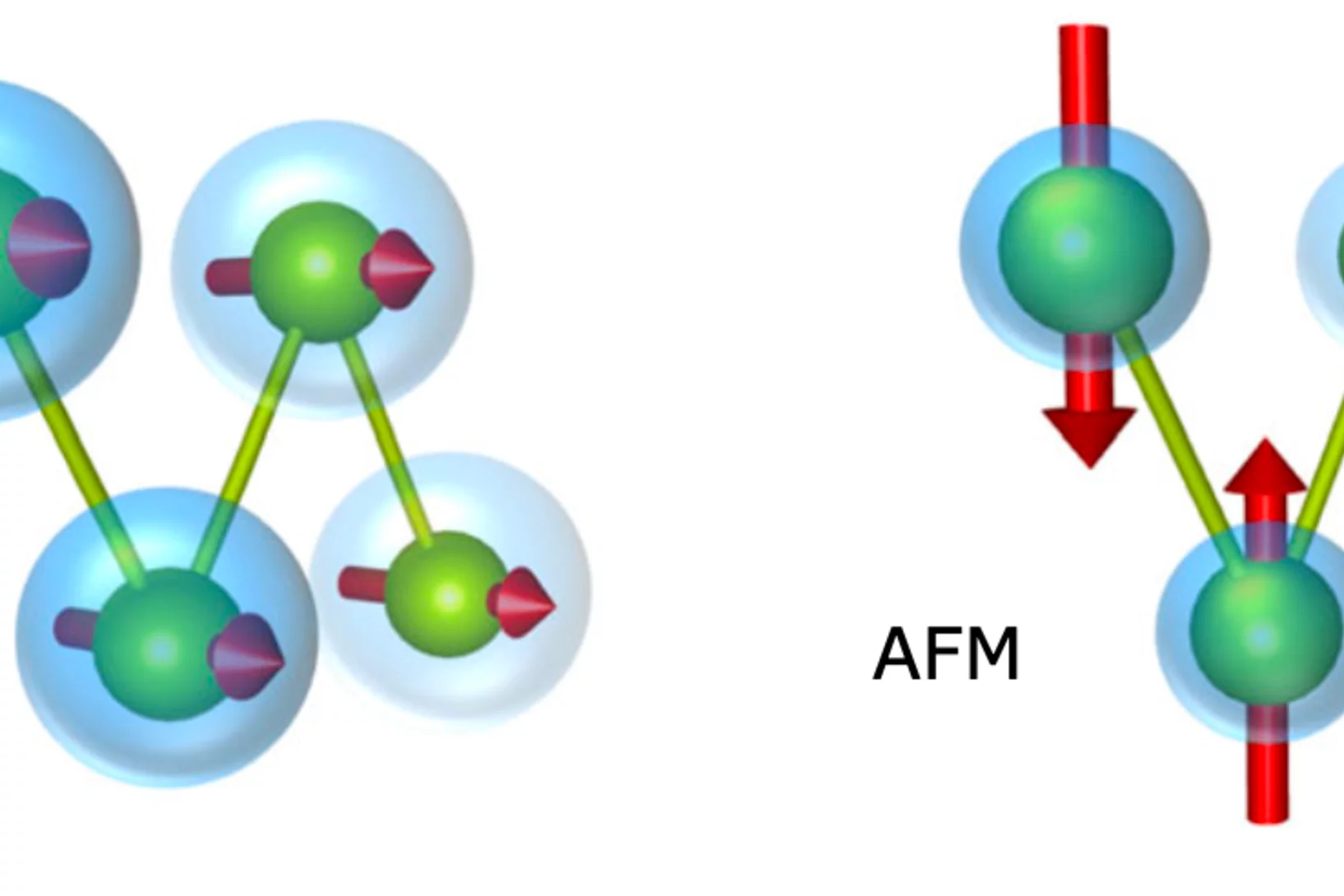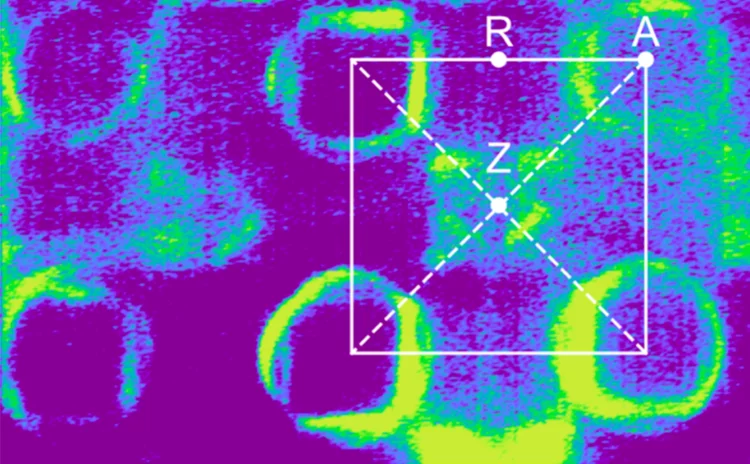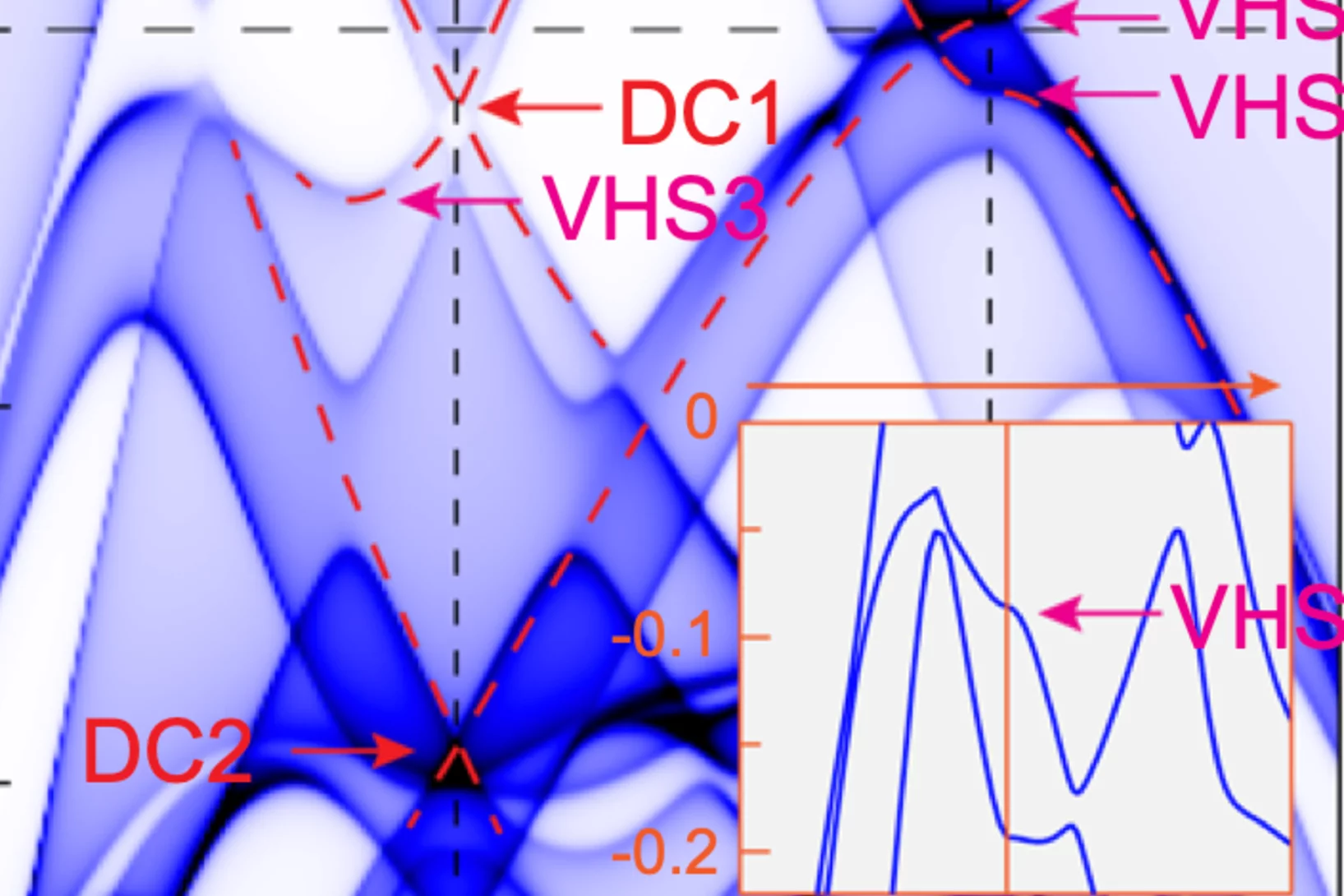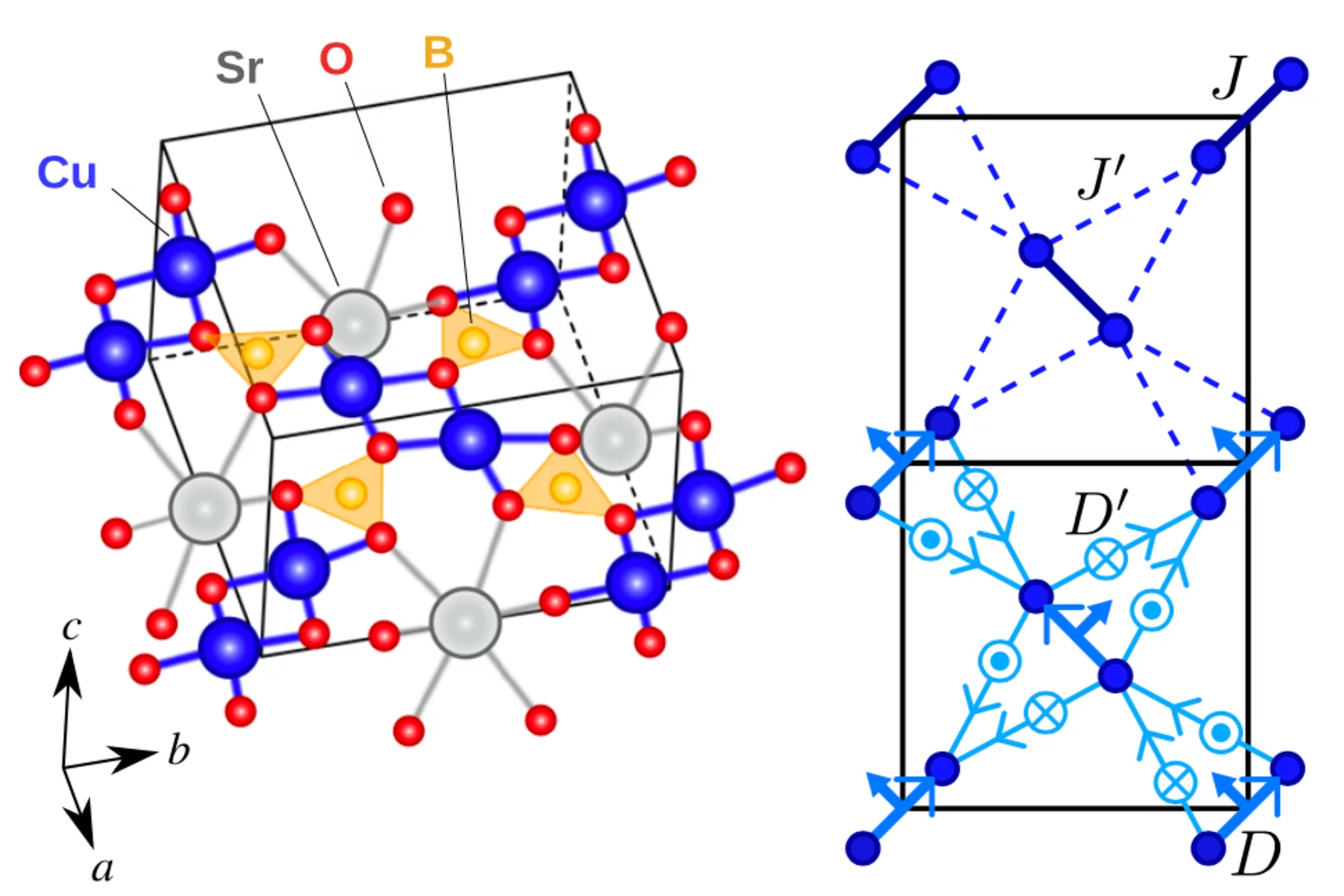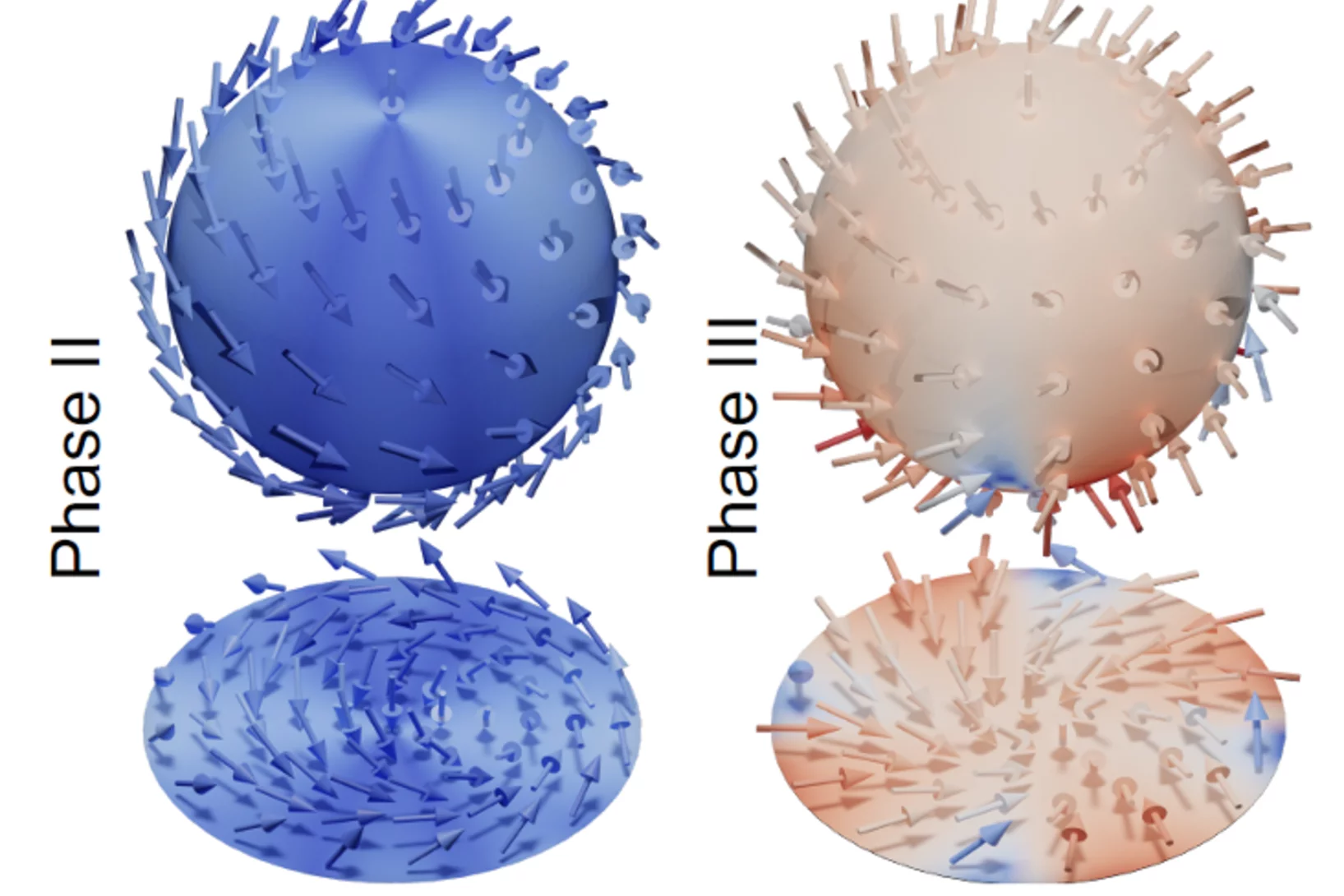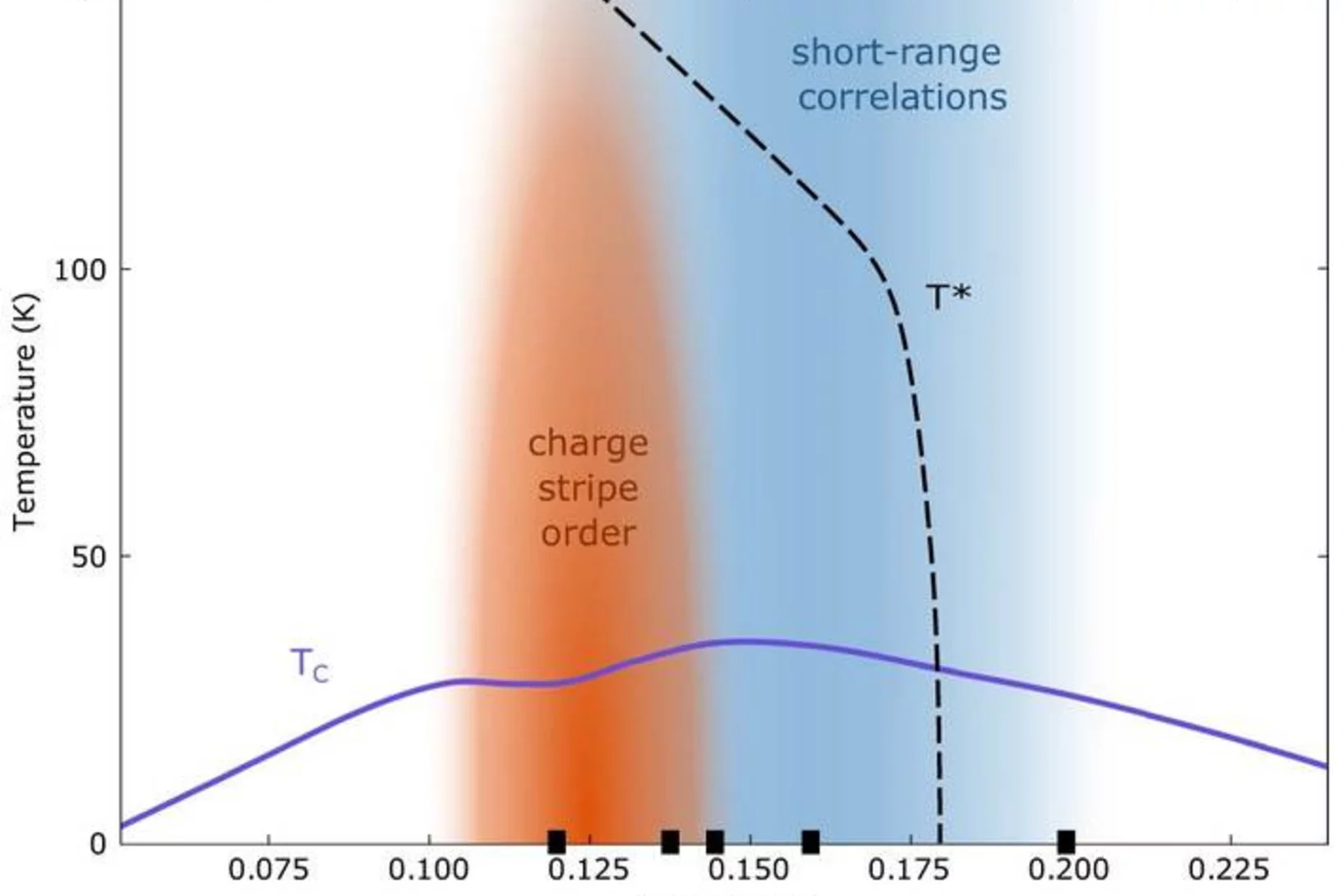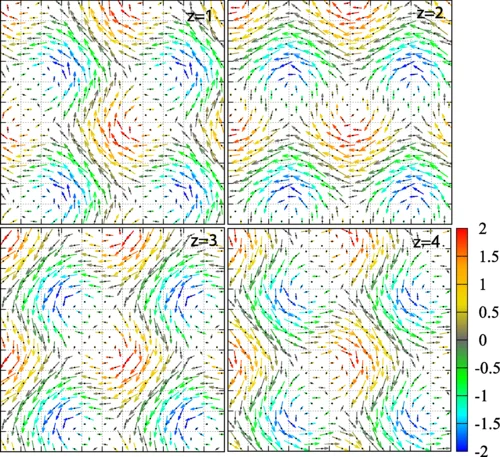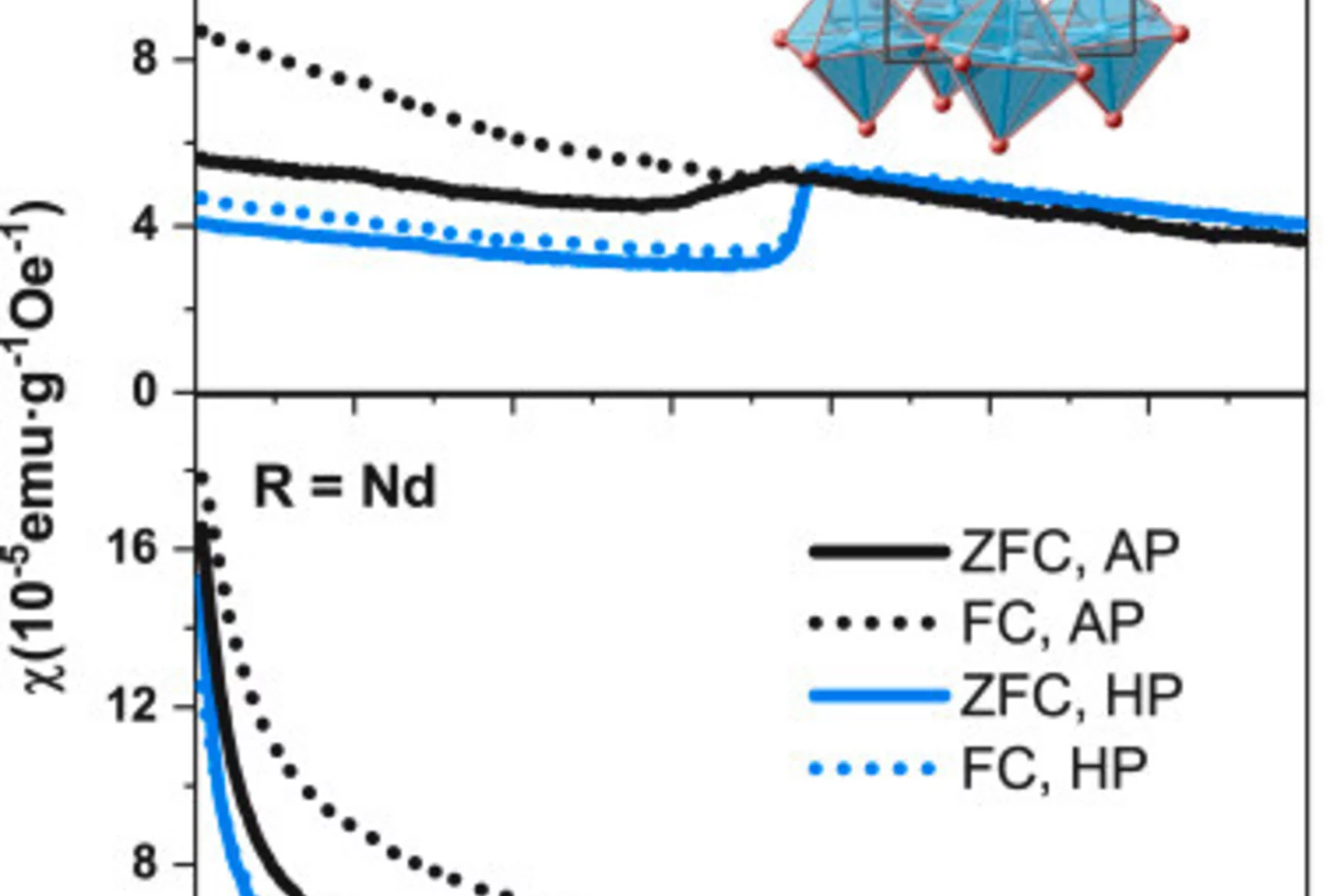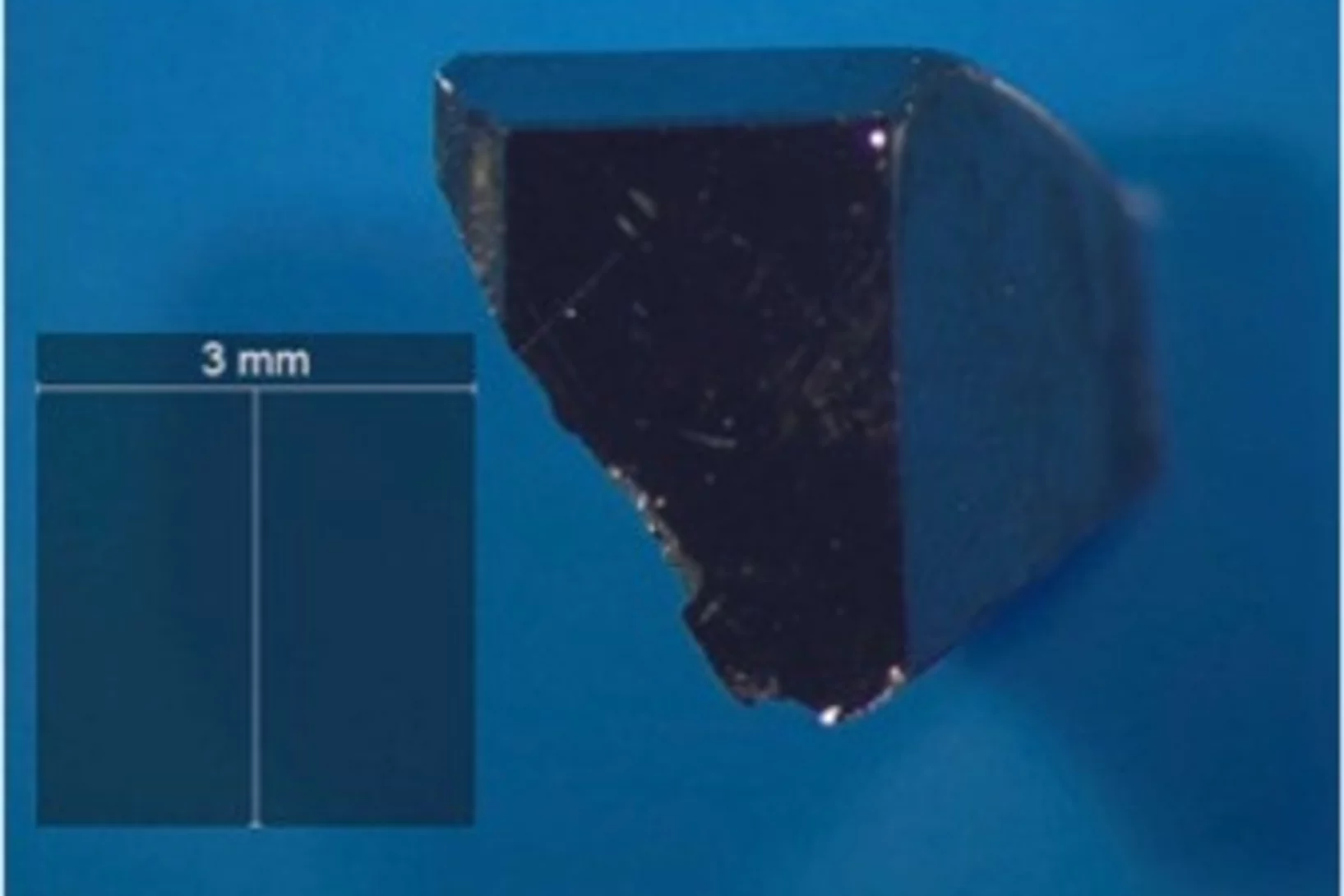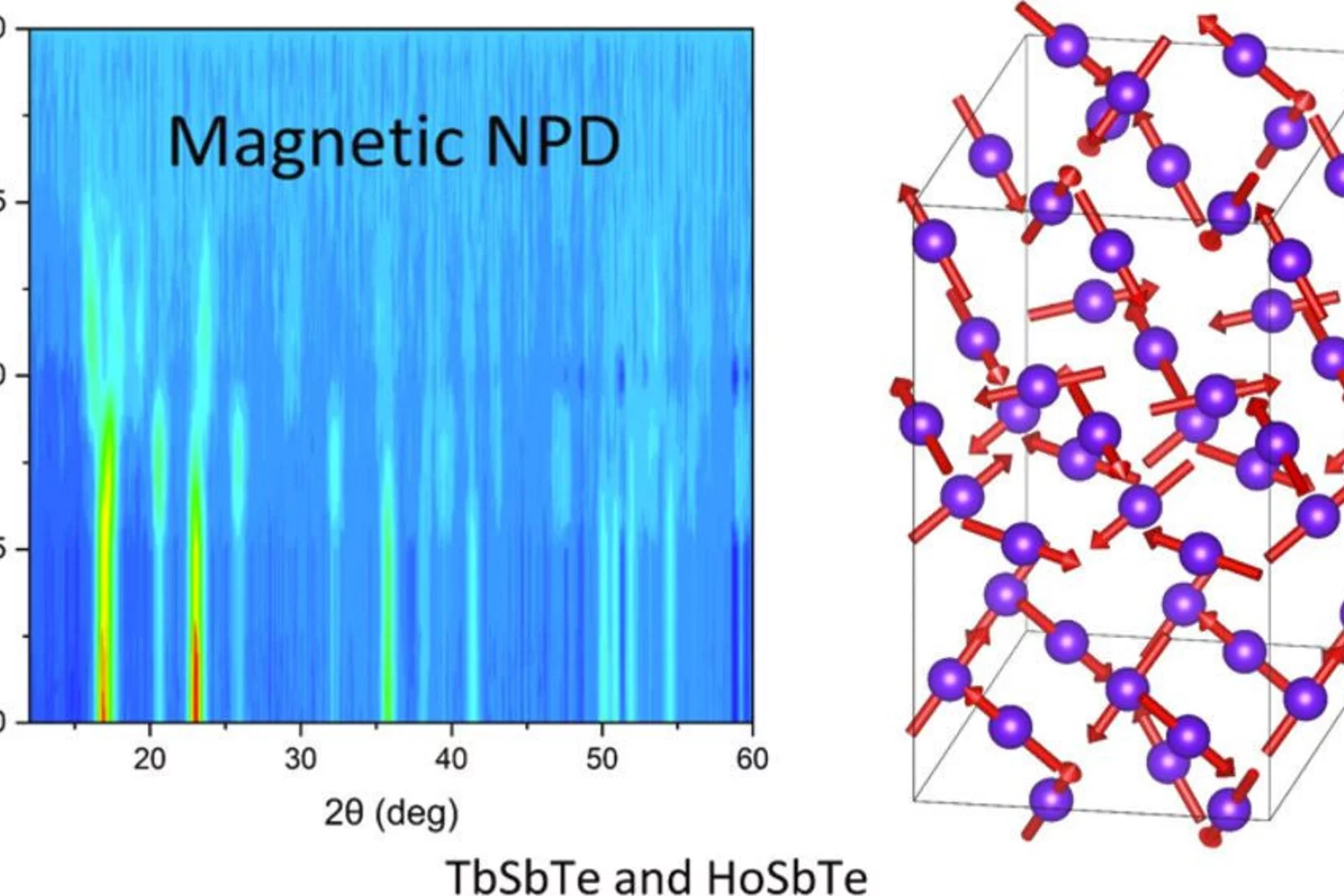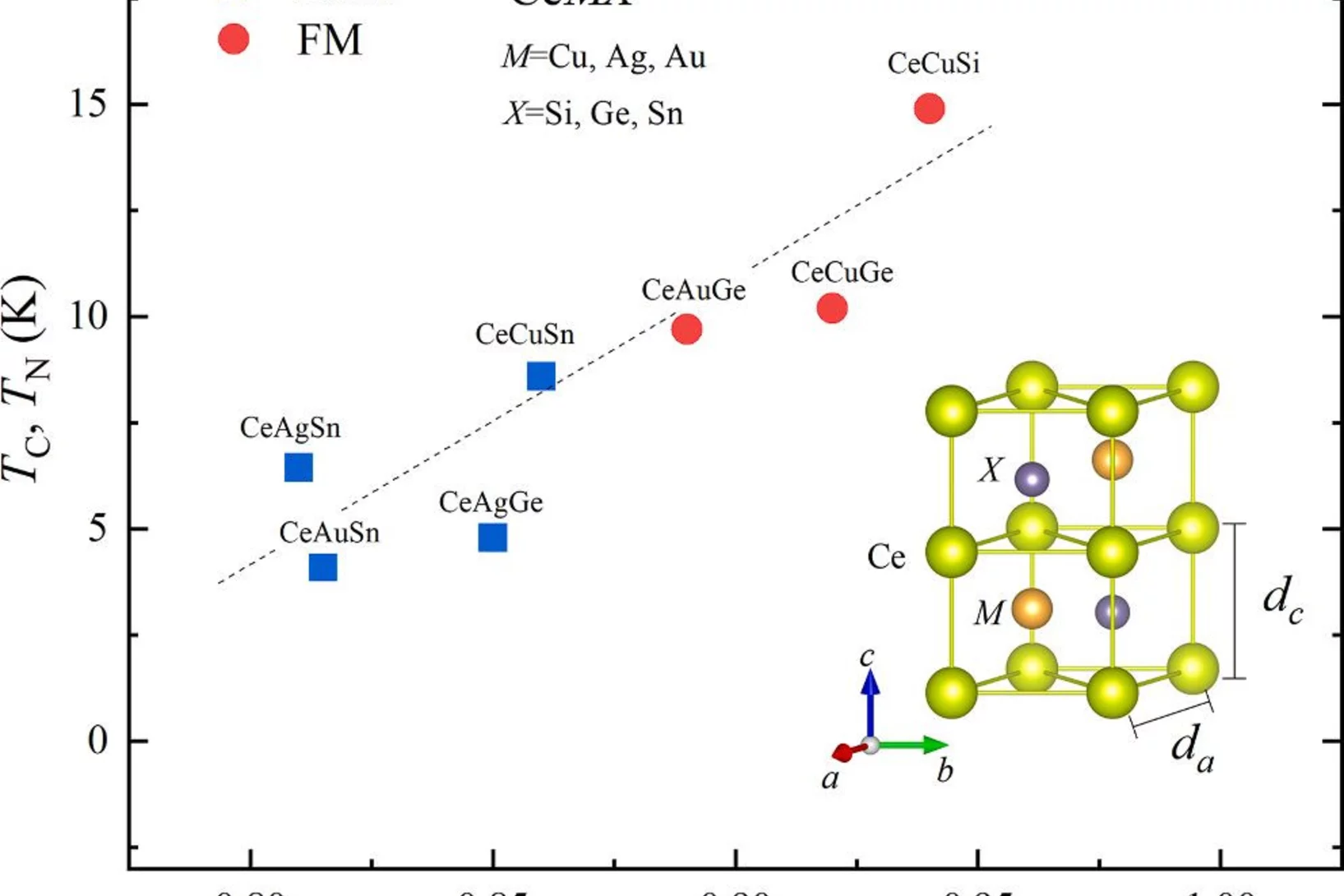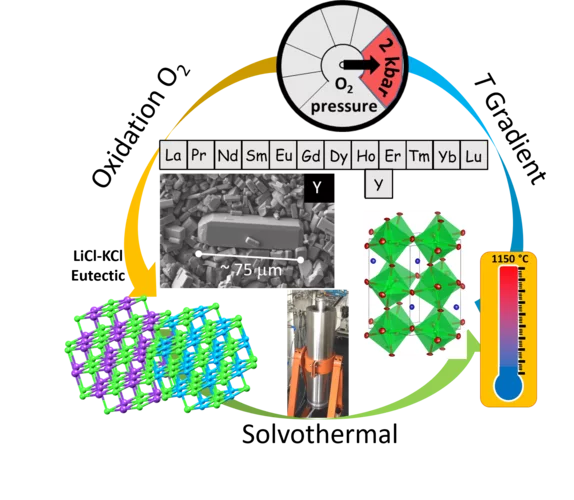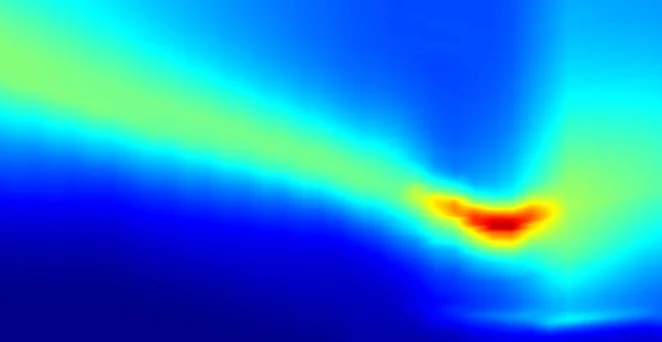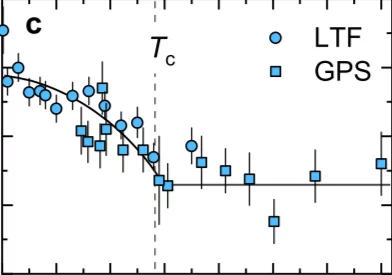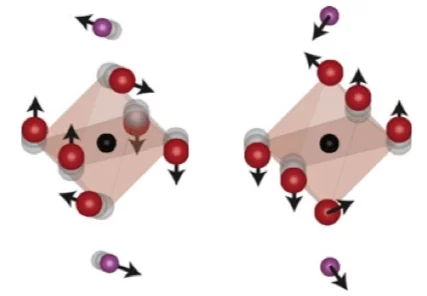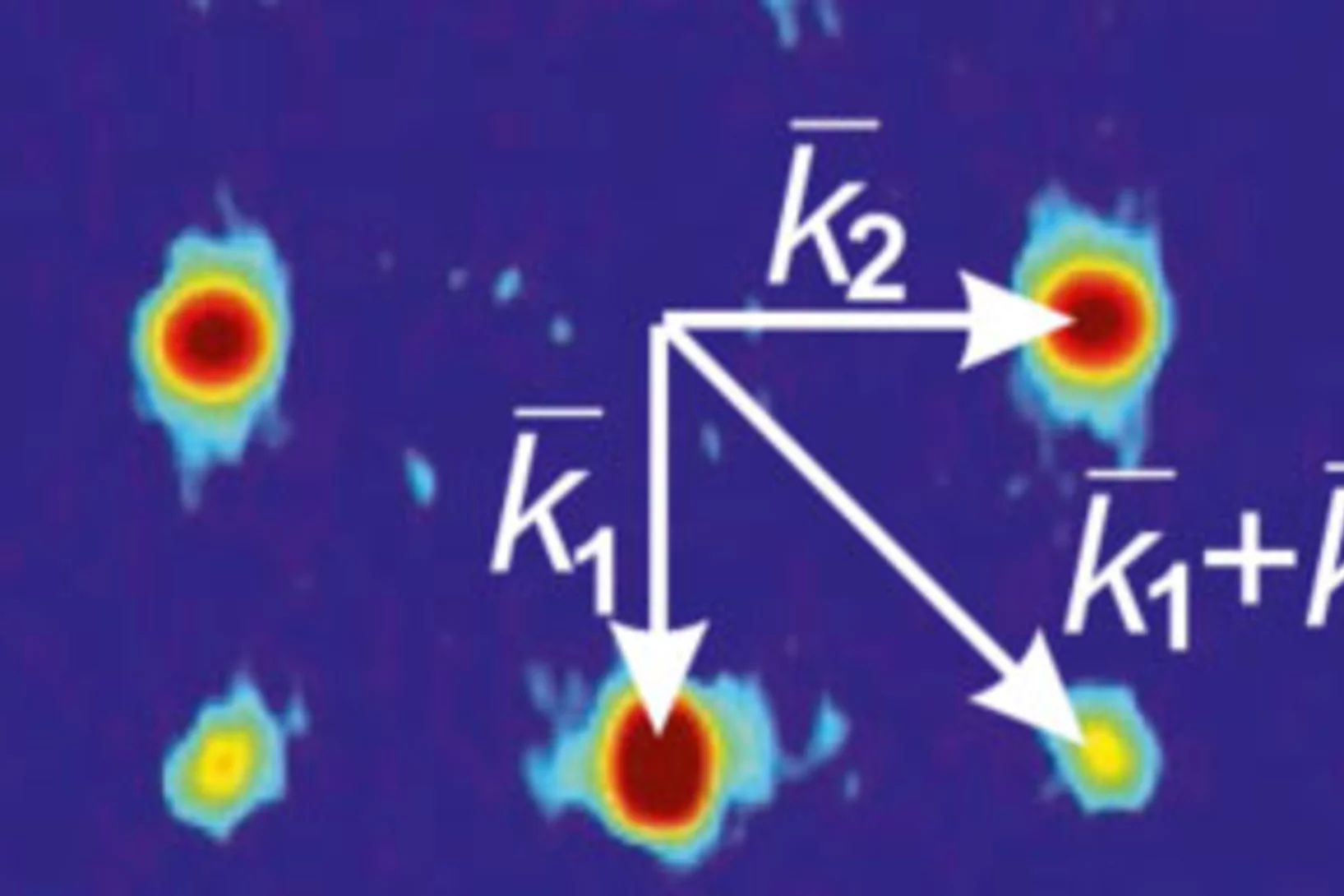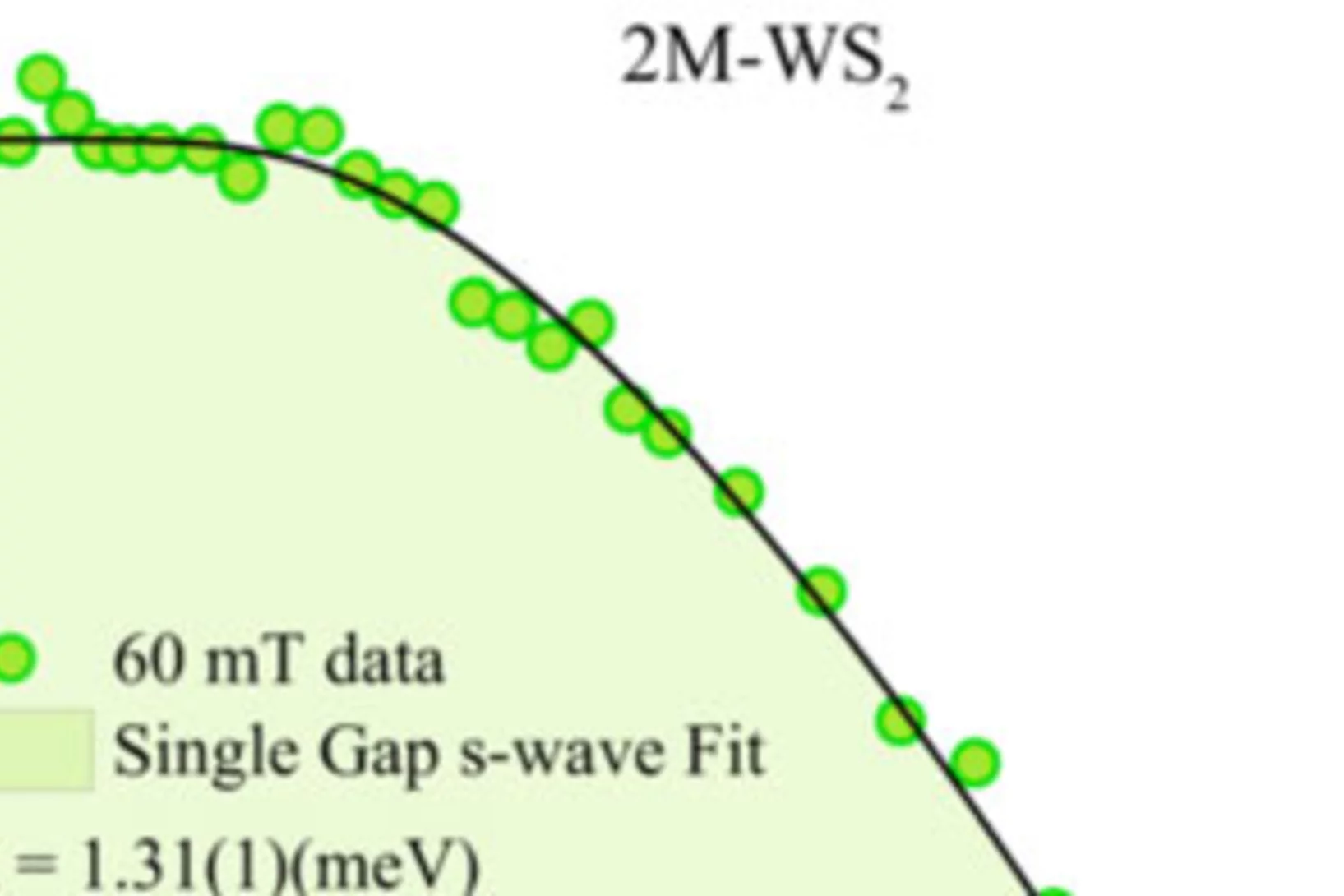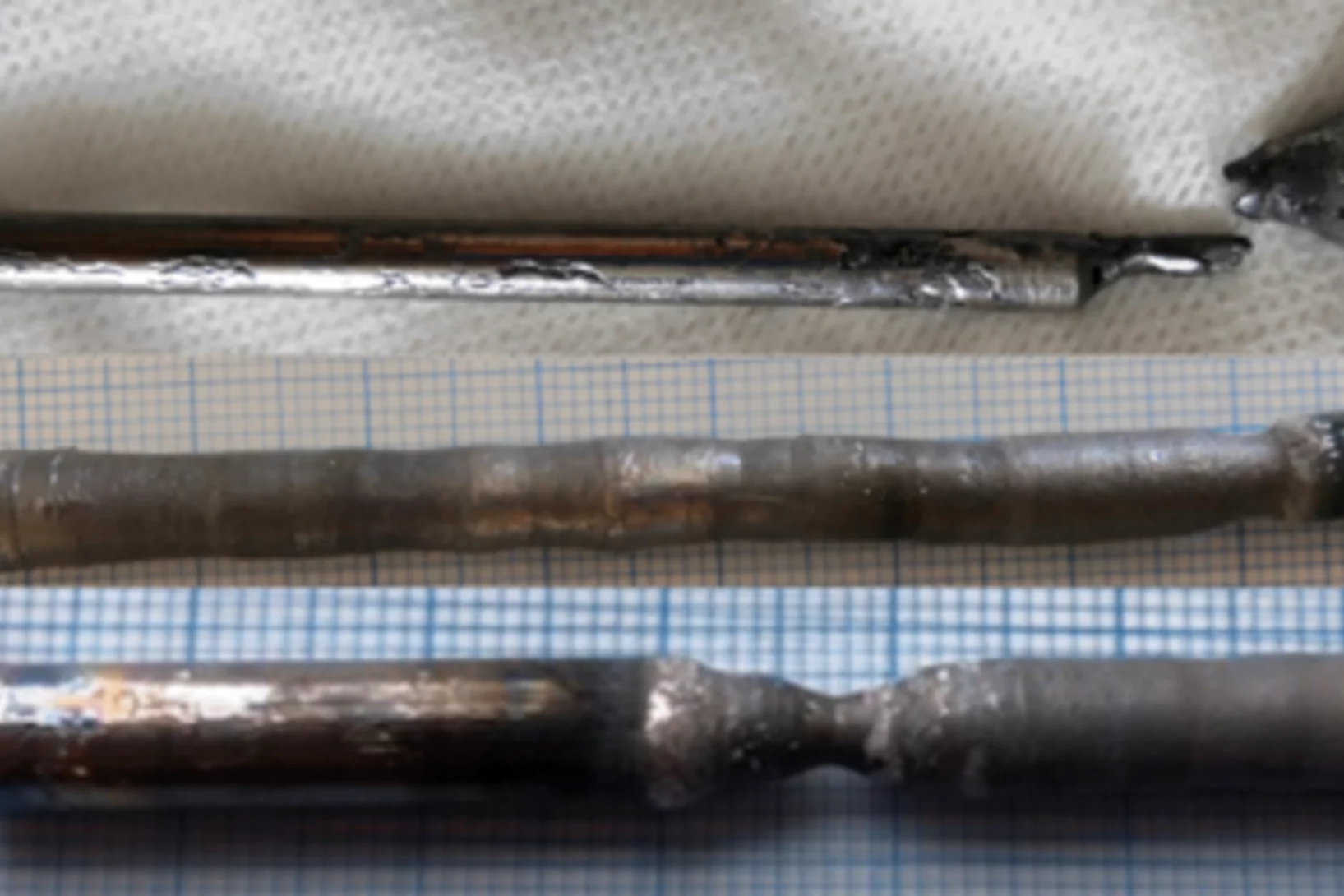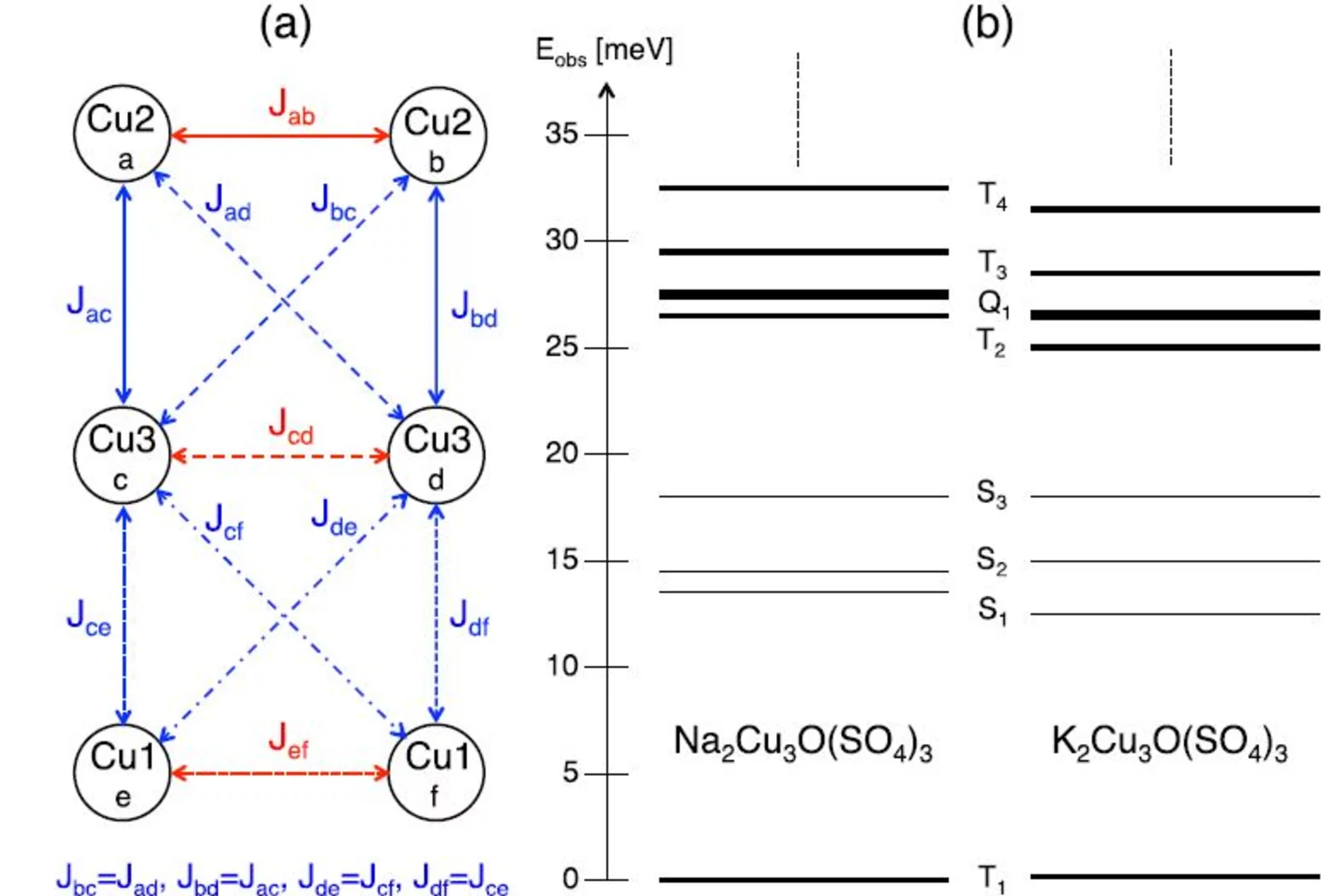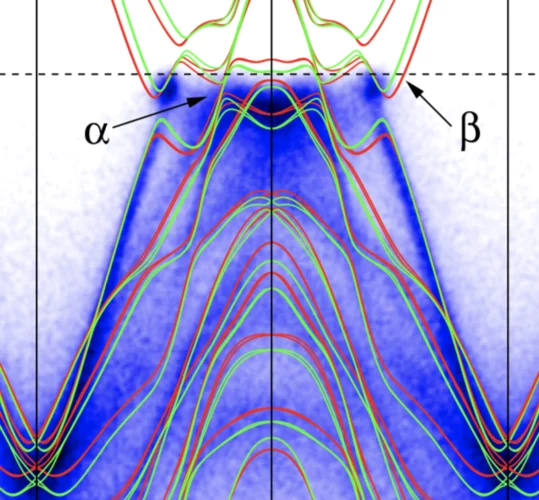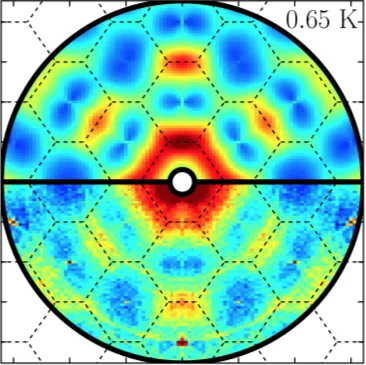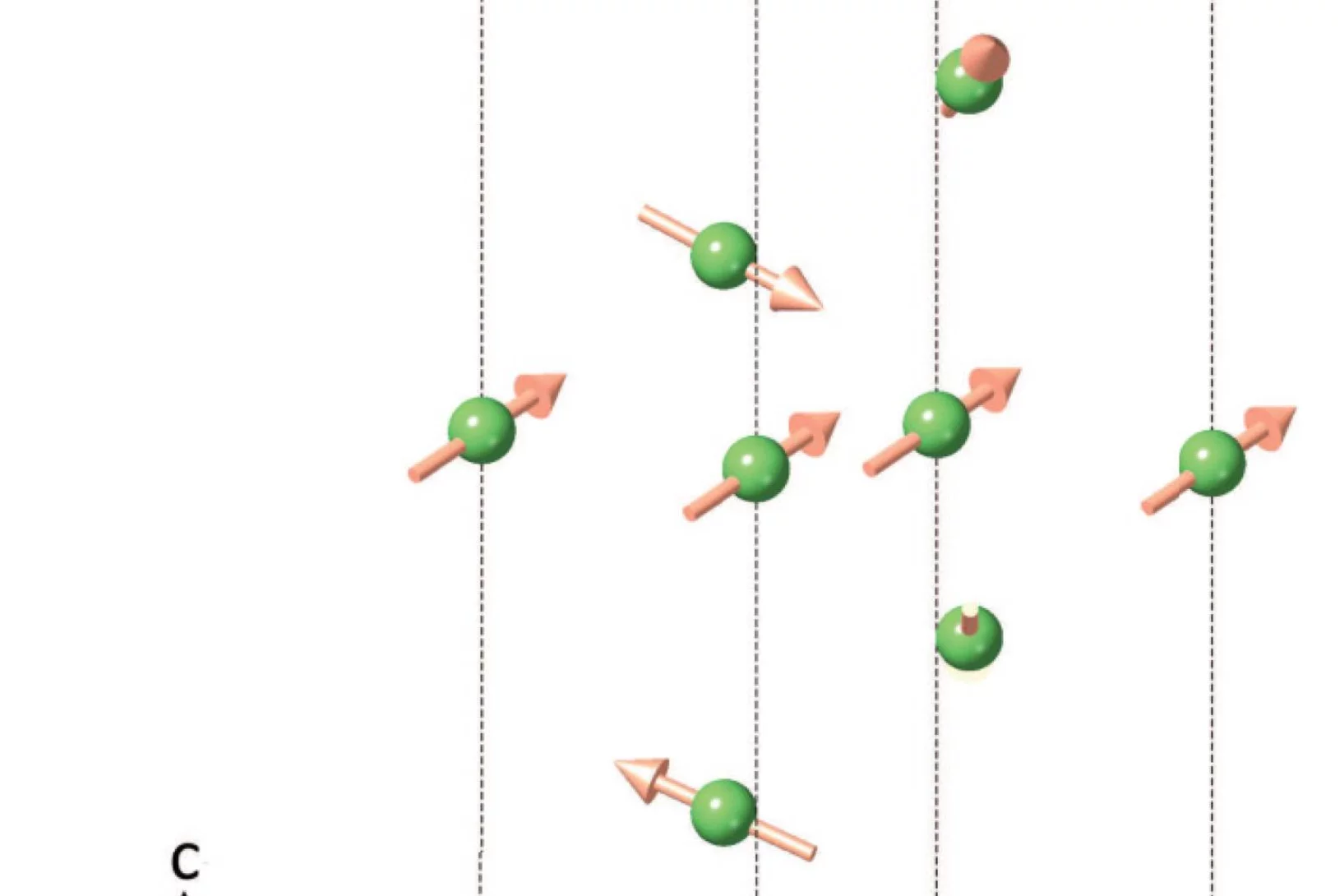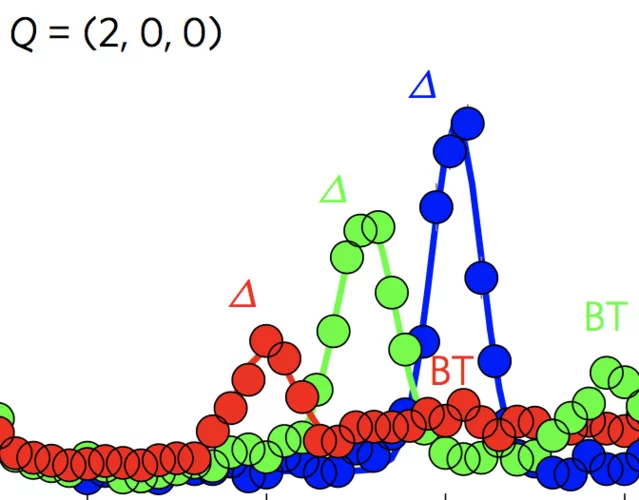Show filters
Pressure effect on the spin density wave transition in La2PrNi2O6.96
High-pressure studies reveal a stark contrast between the superconducting properties of double-layer Ruddlesden-Popper (RP) nickelates La2PrNi2O7 and La3Ni2O7. While La2PrNi2O7 exhibits bulk superconductivity, La3Ni2O7 displays filamentary behavior, suggesting that superconductivity is confined to phase interfaces rather than the bulk. Since magnetism emerges ...
Anomalous Hall Effect due to Magnetic Fluctuations in a Ferromagnetic Weyl Semimetal
The anomalous Hall effect (AHE) has emerged as a key indicator of time-reversal symmetry breaking (TRSB) and topological features in electronic band structures. Absent of a magnetic field, the AHE requires spontaneous TRSB but has proven hard to probe due to averaging over domains. The anomalous component of the Hall effect is thus frequently derived from extrapolating the magnetic field dependence of the Hall response. We show ....
Spin-orbit control of antiferromagnetic domains without a Zeeman coupling
Encoding information in antiferromagnetic (AFM) domains is a promising solution for the ever growing demand in magnetic storage capacity. The absence of a macroscopic magnetization avoids crosstalk between different domain states, enabling ultrahigh density spintronics while being detrimental to the domain detection and manipulation. Disentangling these merits and disadvantages seemed so far unattainable. We report evidence ...
Discovery of charge order above roomtemperature in the prototypical kagome superconductor La(Ru1−xFex)3Si2
The kagome lattice is an intriguing and rich platform for discovering, tuning and understanding the diverse phases of quantum matter, crucial for advancing modern and future electronics. Despite considerable efforts, accessing correlated phases at room temperature has been challenging.
Ferromagnetic quantum critical point protected by nonsymmorphic symmetry in a Kondo metal
Quantum critical points (QCPs), zero-temperature phase transitions, are win- dows to fundamental quantum-mechanical phenomena associated with universal behaviour. Magnetic QCPs have been extensively investigated in the vicinity of antiferromagnetic order. However, QCPs are rare in metallic ferromagnets due to the coupling of the order parameter to electronic soft modes. Recently, antisymmetric spin-orbit coupling in noncentrosymmetric systems was suggested to protect ferromagnetic QCPs. Nonetheless, multiple centrosymmetric materials ...
Flat-band hybridization between f and d states near the Fermi energy of SmCoIn5
We present high-quality angle-resolved photoemission (ARPES) and density functional theory calculations (DFT+U) of SmCoIn5. We find broad agreement with previously published studies of LaCoIn5 and CeCoIn5, confirming that the Sm 4f electrons are mostly localized. Nevertheless, our model is consistent with an additional delocalized Sm component, stemming from hybridization between the 4f electrons and the metallic bands at “hot spot” positions in the Brillouin zone.
Phonon promoted charge density wave in topological kagome metal ScV6Sn6
Charge density wave (CDW) orders in vanadium-based kagome metals have recently received tremendous attention, yet their origin remains a topic of debate. The discovery of ScV6Sn6, a bilayer kagome metal featuring an intriguing √3 × √3 × √3 CDW order, offers a novel platform to explore the underlying mechanism behind the unconventional CDW. Here we combine ...
Field-induced bound-state condensation and spin-nematic phase in SrCu2(BO3)2 revealed by neutron scattering up to 25.9 T
In quantum magnetic materials, ordered phases induced by an applied mag- netic field can be described as the Bose-Einstein condensation (BEC) of mag- non excitations. In the strongly frustrated system SrCu2(BO3)2, no clear magnon BEC could be observed, pointing to an alternative mechanism, but the high fields required to probe this physics have remained a barrier to detailed investigation.Here we exploit the first purpose-built high-field neutron scattering facility to measure ...
Skyrmion metamorphosis: Lattice transitions of hybrid skyrmions in a polar magnet
Magnetic skyrmions, with their distinctive vortex-like magnetic spin configurations, continue to intrigue researchers due to their potential applications in nanoscience and technology. Traditionally skyrmions form two-dimensional hexagonal close-packed lattices, with the skyrmions themselves displaying one of just two types of internal magnetization texture known as Bloch- or Néel-type. Recent theories hinted at the prospect of reconfigurable transitions between skyrmion phases of different lattice types and internal textures. Until now, experimental evidence supporting such theories has been scarce.
Fate of charge order in overdoped La-based cuprates
In high-temperature cuprate superconductors, stripe order refers broadly to a coupled spin and charge modulation with a commensuration of eight and four lattice units, respectively. How this stripe order evolves across optimal doping remains a controversial question. Here we present a systematic resonant inelastic x-ray scattering study of weak charge correlations in La2−xSrxCuO4 and La1.8−xEu0.2SrxCuO4. Ultra high energy resolution experiments demonstrate the importance of the separation of inelastic and elastic scattering processes. Long-range temperature-dependent stripe order is only found below optimal doping. At higher doping, short-range temperature-independent correlations are present up to the highest doping measured. This transformation is distinct from and preempts the pseudogap critical doping. We argue that the doping and temperature-independent short-range correlations originate from unresolved electron–phonon coupling that broadly peaks at the stripe ordering vector. In La2−xSrxCuO4, long-range static stripe order vanishes around optimal doping and we discuss both quantum critical and crossover scenarios.
Topological magnetic structures in MnGe: Neutron diffraction and symmetry analysis
From new neutron powder diffraction experiments on the chiral cubic (P213) magnet manganese germanide (MnGe), we analyze all of the possible crystal symmetry-allowed magnetic superstructures that are determined successfully from the data. The incommensurate propagation vectors k of the magnetic structure are found to be aligned with the [100] cubic axes, and correspond to a magnetic periodicity of about 30 Å at 1.8 K. Several maximal crystallographic symmetry magnetic structures are found to fit the data equally well and are presented. These include topologically nontrivial magnetic hedgehog and “skyrmion” structures in multi-k cubic or orthorhombic 3+3 and orthorhombic 3+2 dimensional magnetic superspace groups respectively, with either potentially responsible for topological Hall effect. The presence of orthorhombic distortions in the space group P212121 caused by the transition to the magnetically ordered state does not favor the cubic magnetic hedgehog structure, and leave both orthorhombic hedgehog and skyrmion models as equal candidates for the magnetic structures. We also report on a combined mechanochemical and solid-state chemical route to synthesize MnGe at ambient pressures and moderate temperatures, and compare with samples obtained by the traditional high pressure synthesis.
Magnetic structure of R1/3Sr2/3FeO (R = Pr, Nd)
We present magnetization and neutron powder diffraction studies in the temperature range 2K to 300K for oxygen stoichiometric R1/3Sr2/3FeO (R = Pr and Nd). From full symmetry analysis, we proposed two magnetic models by a combined application of irreducible representations and magnetic space groups. Both models fit equally well the neutron powder diffraction data.
Magnetic and crystal structure of the antiferromagnetic skyrmion candidate GdSb0.71Te1.22
GdSb0.46Te1.48, a nonsymmorphic Dirac semimetal with Dirac nodes at the Fermi level, has a rich magnetic phase diagram with one of the phases predicted to be an antiferromagnetic skyrmion state. In the current work, we investigate GdSb0.71Te1.22 through bulk magnetization measurements, single-crystal, and powder synchrotron X-ray diffraction, as well as single-crystal hot-neutron diffraction. We resolve a weak orthorhombic distortion with respect to the tetragonal structure and charge density wave (CDW) satellites due to incommensurate modulations of the crystal structure. At 2 K the magnetic structure is modulated with two propagation vectors, kI = (0.45 0 0.45) and kII = (0.4 0 0), with all their arms visible. While kI persists up to the transition to the paramagnetic state at TN = 11.9 K, kII disappears above an intermediate magnetic transition at T1 = 5 K. Whereas magnetic field applied along the c-axis has only a weak effect on the intensity of antiferromagnetic reflections, it is effective in inducing an additional ferromagnetic component on Gd atoms. We refine possible magnetic structures of GdSb0.71Te1.22 and discuss the possibility of hosting magnetic textures with non-trivial 3D+ 2 topologies in the GdSb1−xTe1+x series.
Crossover of high-energy spin fluctuations from collective triplons to localized magnetic excitations in Sr14−xCaxCu24O41 ladder
We studied the magnetic excitations in the quasi-one-dimensional (q-1D) ladder subsystem of Sr14−xCaxCu24O41 (SCCO) using Cu L3-edge resonant inelastic X-ray scattering (RIXS). By comparing momentum-resolved RIXS spectra with high (x = 12.2) and without (x = 0) Ca content, we track the evolution of the magnetic excitations from collective two-triplon (2 T) excitations (x = 0) to weakly- dispersive gapped modes at an energy of 280 meV (x = 12.2)...
Competing Magnetic Phases in LnSbTe (Ln = Ho and Tb)
The interplay between a topological electronic structure and magnetism may result in intricate physics. In this work, we describe a case of rather peculiar coexistence or competition of several magnetic phases below seemingly single antiferromagnetic transition in LnSbTe (Ln = Ho and Tb) topological semimetals, the magnetic members of the ZrSiS/PbFCl structure type (space group P4/nmm). Neutron diffraction experiments reveal a complex multi-step order below TN = 3.8 K (Ln = Ho) and TN = 6.4 K (Ln = Tb). Magnetic phases can be described using four propagation vectors k1 = (1/2 0 0) and k2 = (1/2 0 1/4) at a base temperature of 1.7 K, which transform into incommensurate vectors k1′ = (1/2 – δ 0 0) and k3 = (1/2 – δ 0 1/2) at elevated temperatures in both compounds. Together with the refined models of magnetic structures, we present the group theoretical analysis of magnetic symmetry of the proposed solutions. These results prompt further investigations of the relation between the electronic structure of those semimetals and the determined antiferromagnetic ordering existing therein.
Cu-doping effects on the ferromagnetic semimetal CeAuGe
We present a study of Cu-substitution effects in 4f-Ce intermetallic compound CeAu1-xCuxGe, with potentially unusual electronic states, in the whole concentration range (x = 0.0 – 1.0). The parent CeAuGe compound, crystallizing in a non-centrosymmetric hexagonal structure, is a ferromagnetic semimetal with Curie temperature 10 K. Cu-doping on Au-site of CeAuGe, CeAu1-xCuxGe, changes the crystal structure from the non-centrosymmetric (P63mc) to centrosymmetric (P63/mmc) space group at the concentration x ∼ 0.5, where the c-lattice constant has a maximum value. Magnetic susceptibility and electrical resistivity measurements reveal that all Cu-doped compounds undergo magnetic phase transition near 10 K, with the maximum transition temperature of 12 K for x = 0.5. The neutron powder diffraction experiments show the ferromagnetic ordering of Ce3+ magnetic moments with a value of about 1.2 μB at 1.8 K, oriented perpendicular to the hexagonal c-axis. By using symmetry analysis, we have found the solutions for the magnetic structure in the ferromagnetic Shubnikov space groups Cmc'21′ and P21′/m' for x < 0.5 and x ≥ 0.5, respectively. Electrical resistivity ρ(T) exhibits a metallic temperature behaviour in all compositions. The resistivity ρ(T) has a local minimum in the paramagnetic state due to Kondo effects at high doping x = 0.8 and 1.0. At the small Cu-doping level, x = 0.2, the resistivity shows a broad feature at the ferromagnetic transition temperature and an additional transition-like peculiarity at 2.5 K in the ferromagnetic state.
RENiO3 Single Crystals (RE = Nd, Sm, Gd, Dy, Y, Ho, Er, Lu) Grown from Molten Salts under 2000 bar of Oxygen Gas Pressure
Schematic representation of the method used to grow RENiO3 nickelate single crystals covering the full 4f series and Y. This novel procedure, based on the use of moderate oxygen gas pressures (2000 bar), solvothermal growth in a temperature gradient, and highly reactive eutectic salt mixtures as fluxes, yields prismatic-shaped crystals with flat facets and sizes up to ∼75 μm.
A quantum magnetic analogue to the critical point of water
At the liquid–gas phase transition in water, the density has a discontinuity at atmospheric pressure; however, the line of these first-order transitions defined by increasing the applied pressure terminates at the critical point, a concept ubiquitous in statistical thermodynamics. In correlated quantum materials, it was predicted and then confirmed experimentally that a critical point terminates the line of Mott metal–insulator transitions, which are also first-order with a discontinuous charge carrier density. In quantum spin systems, continuous quantum phase transitions have been controlled by pressure, applied magnetic field and disorder, but discontinuous quantum phase transitions have received less attention.
Re(1−x)Mox as an ideal test case of time-reversal symmetry breaking in unconventional superconductors
Non-centrosymmetric superconductors (NCSCs) are promising candidates in the search for unconventional and topological superconductivity. The α-Mn-type rhenium-based alloys represent excellent examples of NCSCs, where spontaneous magneticfields, peculiar to time-reversal symmetry (TRS) breaking, have been shown to develop in the superconducting phase. By converse, TRS is preserved in many other isostructural NCSCs, thus leaving the key question about its origin fully open. Here, we consider ...
Strain engineering of the charge and spin-orbital interactions in Sr2IrO4
Understanding the relationship between entangled degrees of freedom (DOF) is a central problem in correlated materials and the possibility to influence their balance is promising toward realizing novel functionalities. In Sr2IrO4, the interaction between spin–orbit coupling and electron correlations induces an exotic ground state with magnetotransport properties promising for antiferromagnetic spintronics applications.
Electron–phonon-driven three-dimensional metallicity in an insulating cuprate
Elucidating the role of different degrees of freedom in a phase transition is crucial in the comprehension of complex materi- als. A phase transformation that attracts significant interest is the insulator-to-metal transition of Mott insulators, in which the electrons are thought to play the dominant role. Here, we use ultrafast laser spectroscopy and theoretical calculations ....
Magnetism and anomalous transport in the Weyl semimetal PrAlGe: possible route to axial gauge fields
In magnetic Weyl semimetals, where magnetism breaks time-reversal symmetry, large magnetically sensitive anomalous transport responses are anticipated that could be useful for topological spintronics. The identification of new magnetic Weyl semimetals is therefore in high demand, particularly since in these systems Weyl node configurations may be easily modified using magnetic fields. Here we explore experimentally the magnetic semimetal PrAlGe, and unveil a direct correspondence between easy-axis Pr ferromagnetism and anomalous Hall and Nernst effects.
Topological Magnetic Phase in the Candidate Weyl Semimetal CeAlGe
We report the discovery of topological magnetism in the candidate magnetic Weyl semimetal CeAlGe. Using neutron scattering we find this system to host several incommensurate, square-coordinated multi-k⃗ magnetic phases below TN. The topological properties of a phase stable at intermediate magnetic fields parallel to the c axis are suggested by observation of a topological Hall effect.
Nodeless superconductivity and its evolution with pressure in the layered dirac semimetal 2M-WS2
Recently, the transition metal dichalcogenide (TMD) system 2M-WS2 has been identified as a Dirac semimetal exhibiting both superconductivity with the highest Tc ~ 8.5 K among all the TMD materials and topological surface states. Here we report on muon spin rotation (μSR) and density functional theory studies of microscopic SC properties and the electronic structure in 2M-WS2 at ambient and under hydrostatic pressures (pmax = 1.9 GPa).
Bulk single-crystal growth of the theoretically predicted magnetic Weyl semimetals RAlGe (R = Pr, Ce)
We explore two methods for single-crystal growth of the theoretically proposed magnetic Weyl semimetals RAlGe (R = Pr, Ce), which prove that a floating-zone technique, being both crucible- and flux-free, is crucial to obtain perfectly stoichiometric RAlGe crystals. In contrast, the crystals grown by a flux-growth technique tend to be Al-rich. We further present both structural and elemental analyses, along with bulk magnetization and electrical resistivity data on the crystals prepared by the floating-zone technique. Both systems with the intended 1:1:1 stoichiometry crystallize in the anticipated polar I41md (No. 109) space group, although neither displays the theoretically expected ferromagnetic ground state.
Spin triplet ground-state in the copper hexamer compounds A2Cu3O(SO4)3 (A = Na, K)
The compounds A2Cu3O(SO4)3(A=Na,K) are characterized by copper hexamers which are weakly coupled along the b axis to realize one-dimensional antiferromagnetic chains below TN≈3K, whereas the interchain interactions along the a and c axes are negligible. We investigated the energy-level splittings of the copper hexamers by inelastic neutron scattering below and above TN.
Evidence of a Coulomb-Interaction-Induced Lifshitz Transition and Robust Hybrid Weyl Semimetal in Td-MoTe2
Using soft x-ray angle-resolved photoemission spectroscopy we probed the bulk electronic structure of Td-MoTe2. We found that on-site Coulomb interaction leads to a Lifshitz transition, which is essential for a precise description of the electronic structure. A hybrid Weyl semimetal state with a pair of energy bands touching at both type-I and type-II Weyl nodes is indicated by comparing the experimental data with theoretical calculations.
Pauling Entropy, Metastability, and Equilibrium in Dy2Ti2O7 Spin Ice
Determining the fate of the Pauling entropy in the classical spin ice material Dy2Ti2O7 with respect to the third law of thermodynamics has become an important test case for understanding the existence and stability of ice-rule states in general. The standard model of spin ice—the dipolar spin ice model—predicts an ordering transition at T ≈ 0.15K, but recent experiments by Pomaranski et al.
Revisiting the magnetic structure of La1/3Sr2/3FeO3 by neutron powder diffraction and Mössbauer spectroscopy
La1/3Sr2/3FeO3 is reported to show a 2Fe4+ → Fe3+ + Fe5+ charge disproportionation (CD) accompanied by Fe3+/Fe5+ charge ordering (CO) and a metal-insulator (MI) transition at 200 K [1]. The MI transition was ascribed to CD and CO. Based on the CO, the magnetic structure was reported to be P-3m1 or P1 from the neutron diffraction studies performed at 50 K and 15 K, respectively [2]. The former seems not to be a correct solution since the presence of rotoinversion -3 is incompatible with the claimed collinear magnetic structure, with the collinear moments in the ab-plane in R-3c metric; and the latter might be a correct solution, but without any symmetry restrictions in space group P1.
4-spin plaquette singlet state in the Shastry–Sutherland compound SrCu2(BO3)2
The study of interacting spin systems is of fundamental importance for modern condensed-matter physics. On frustrated lattices, magnetic exchange interactions cannot be simultaneously satisfied, and often give rise to competing exotic ground states. The frustrated two-dimensional Shastry–Sutherland lattice realized by SrCu2(BO3)2 is an important test to our understanding of quantum magnetism.

